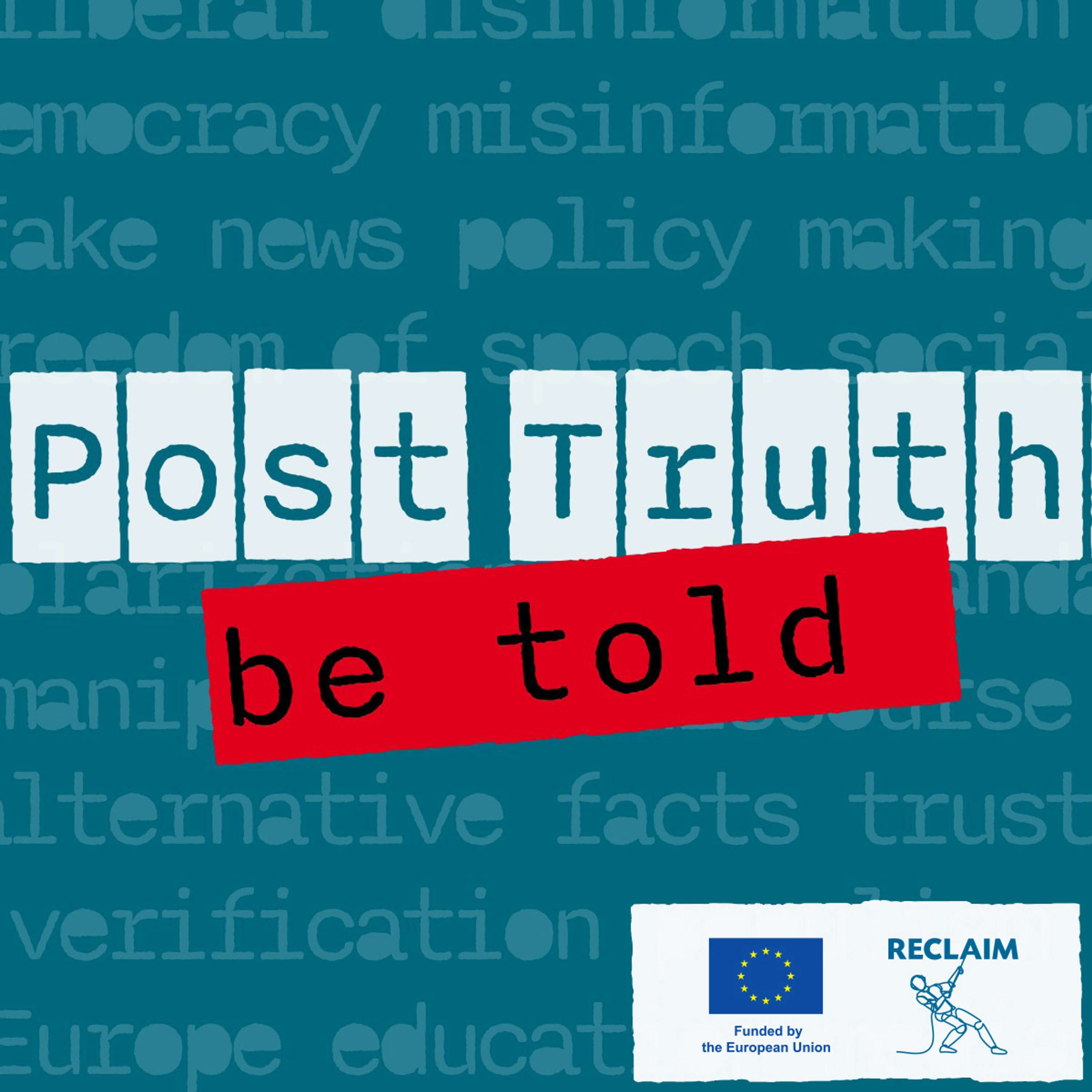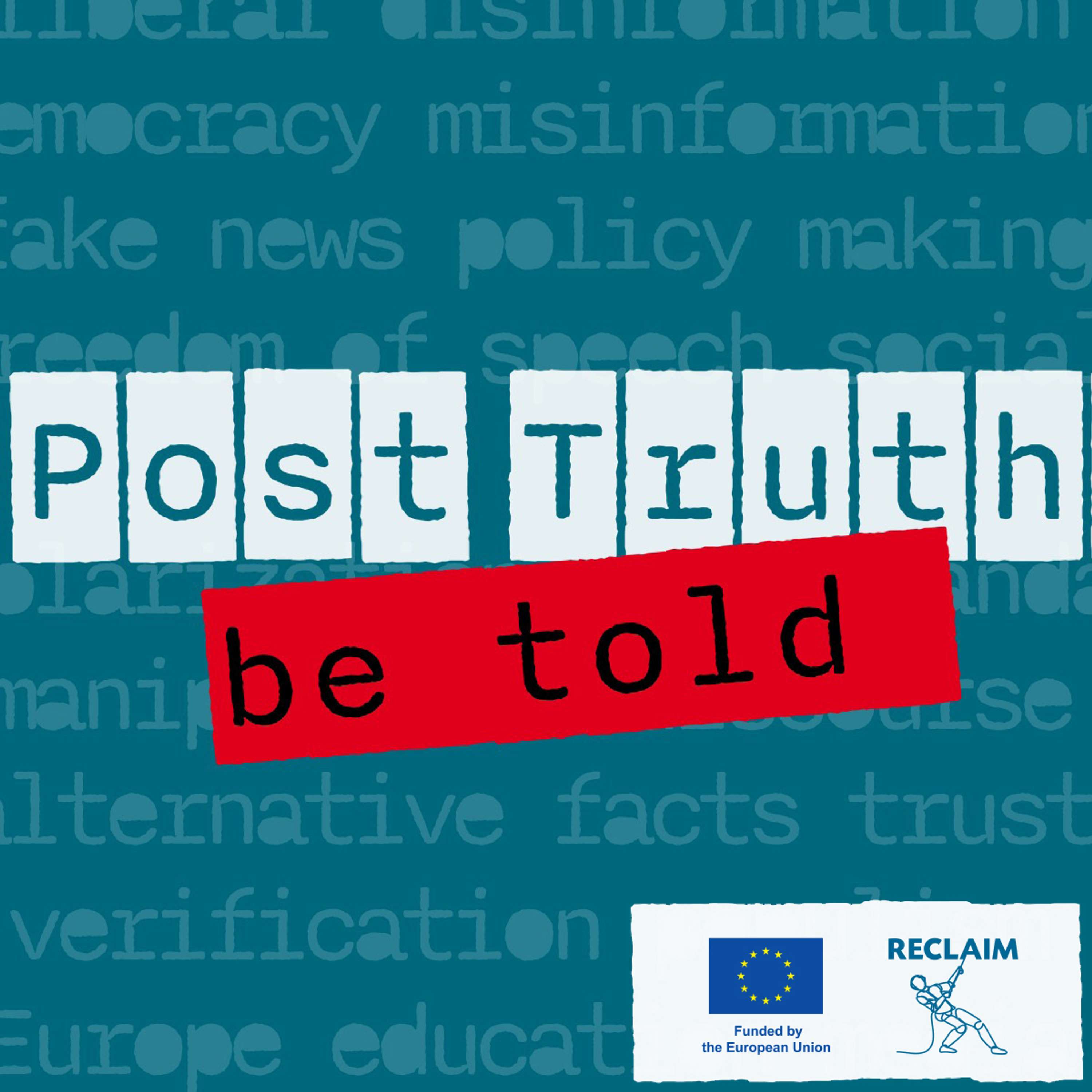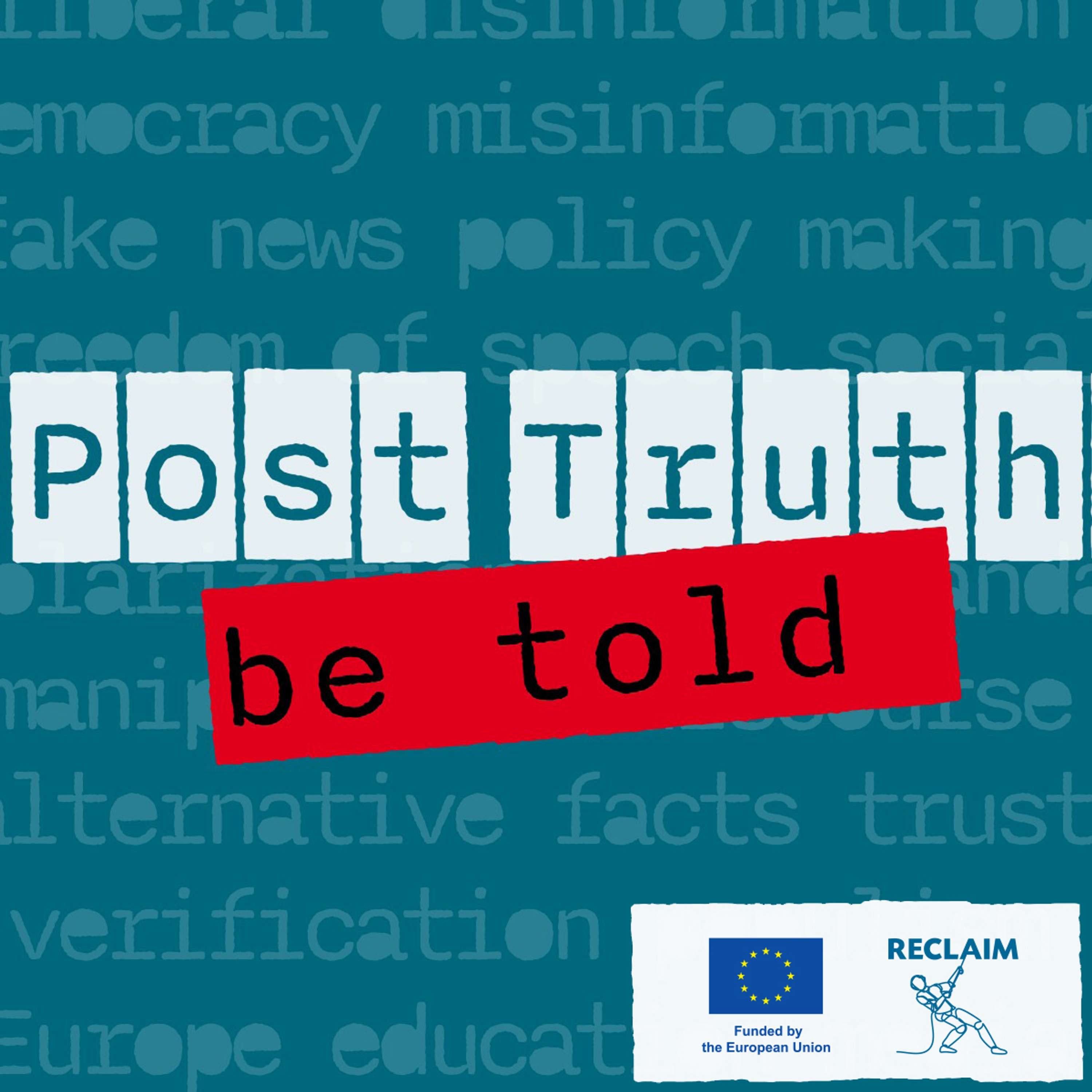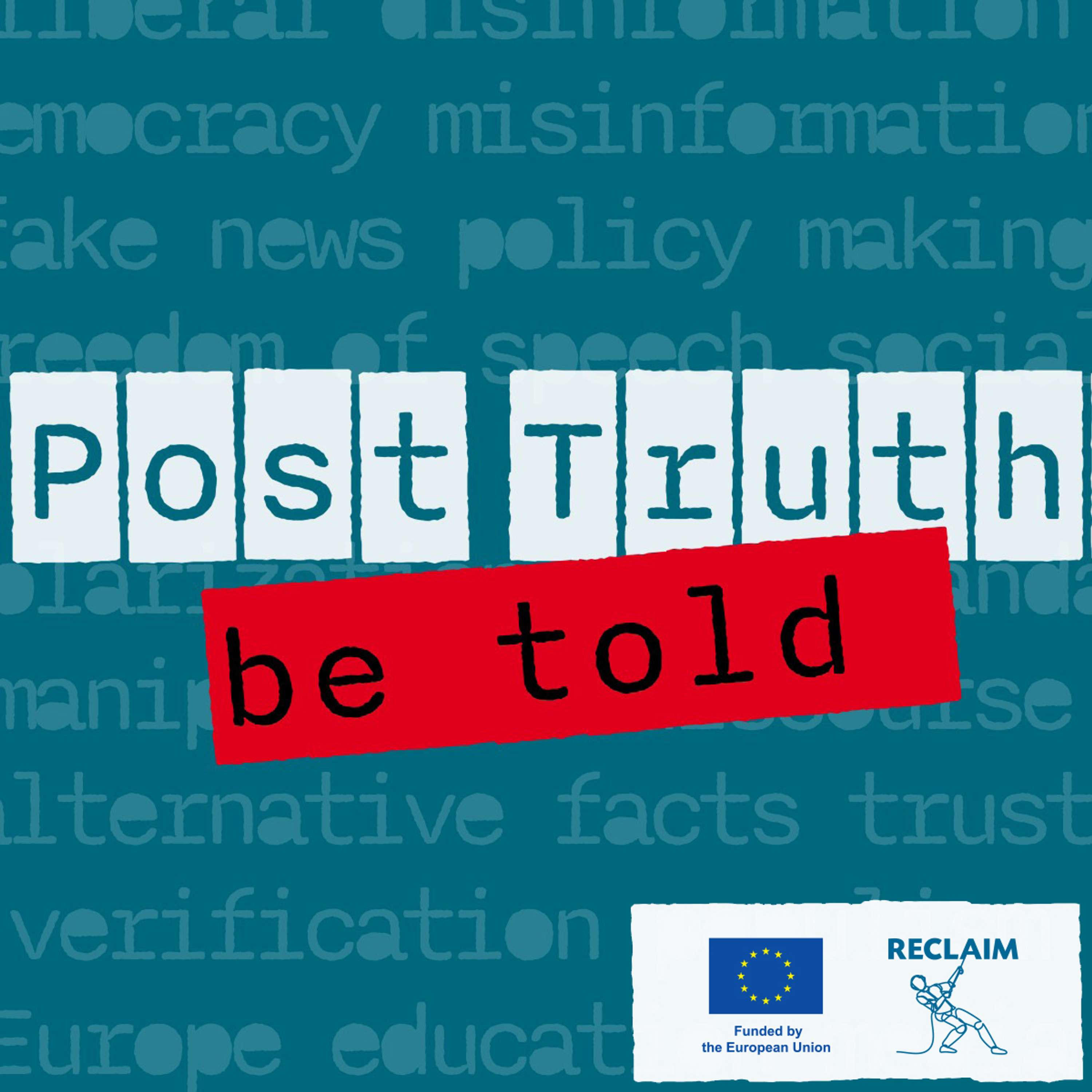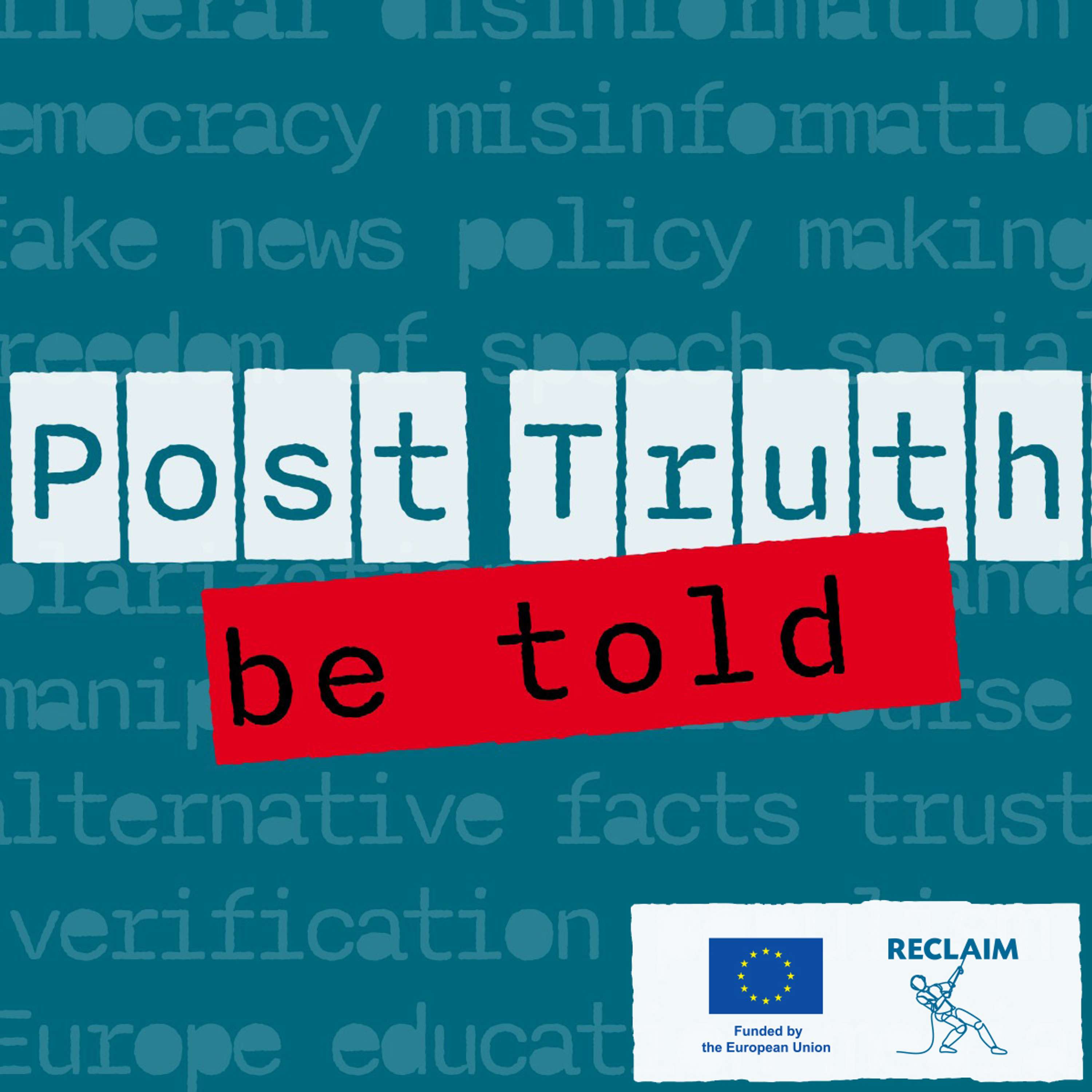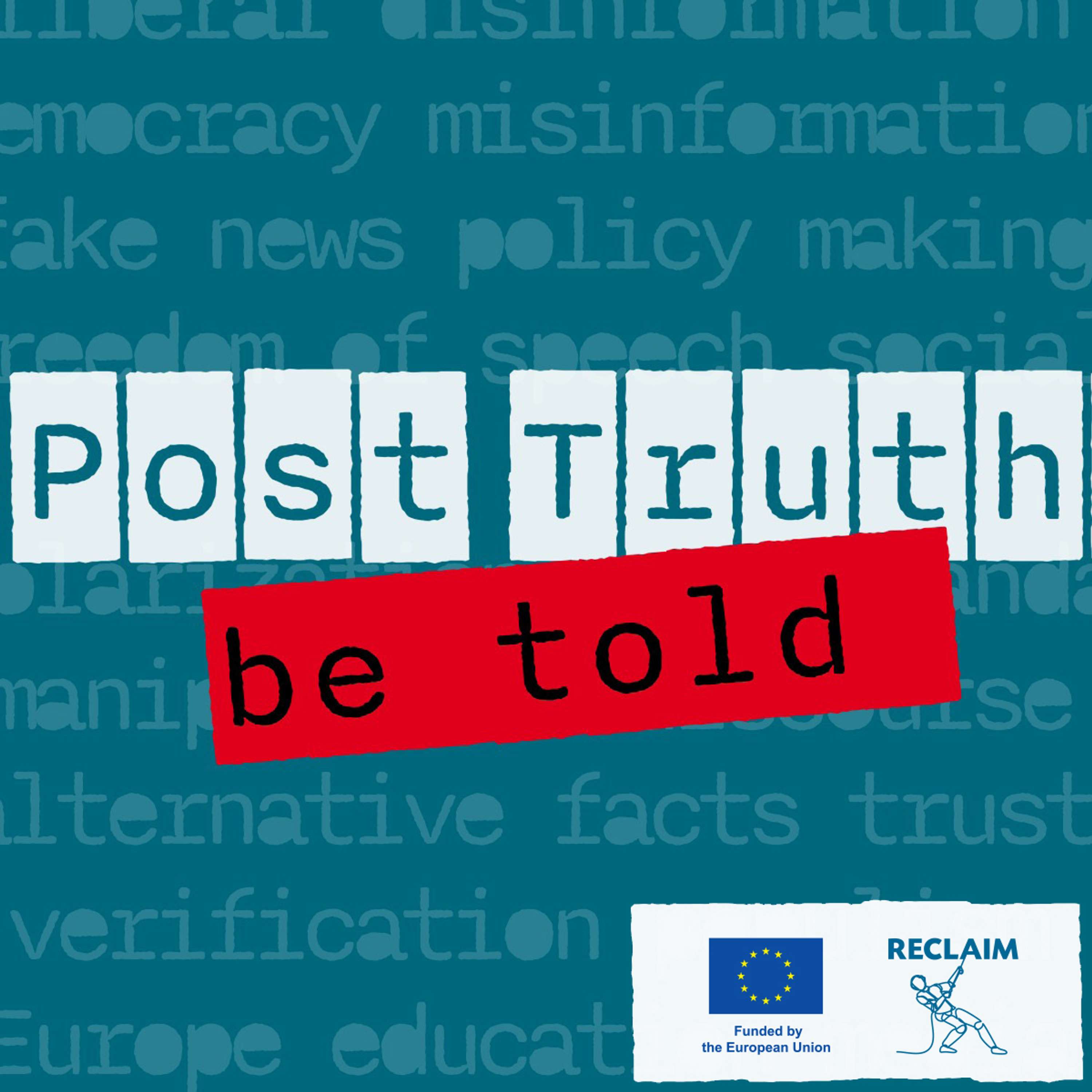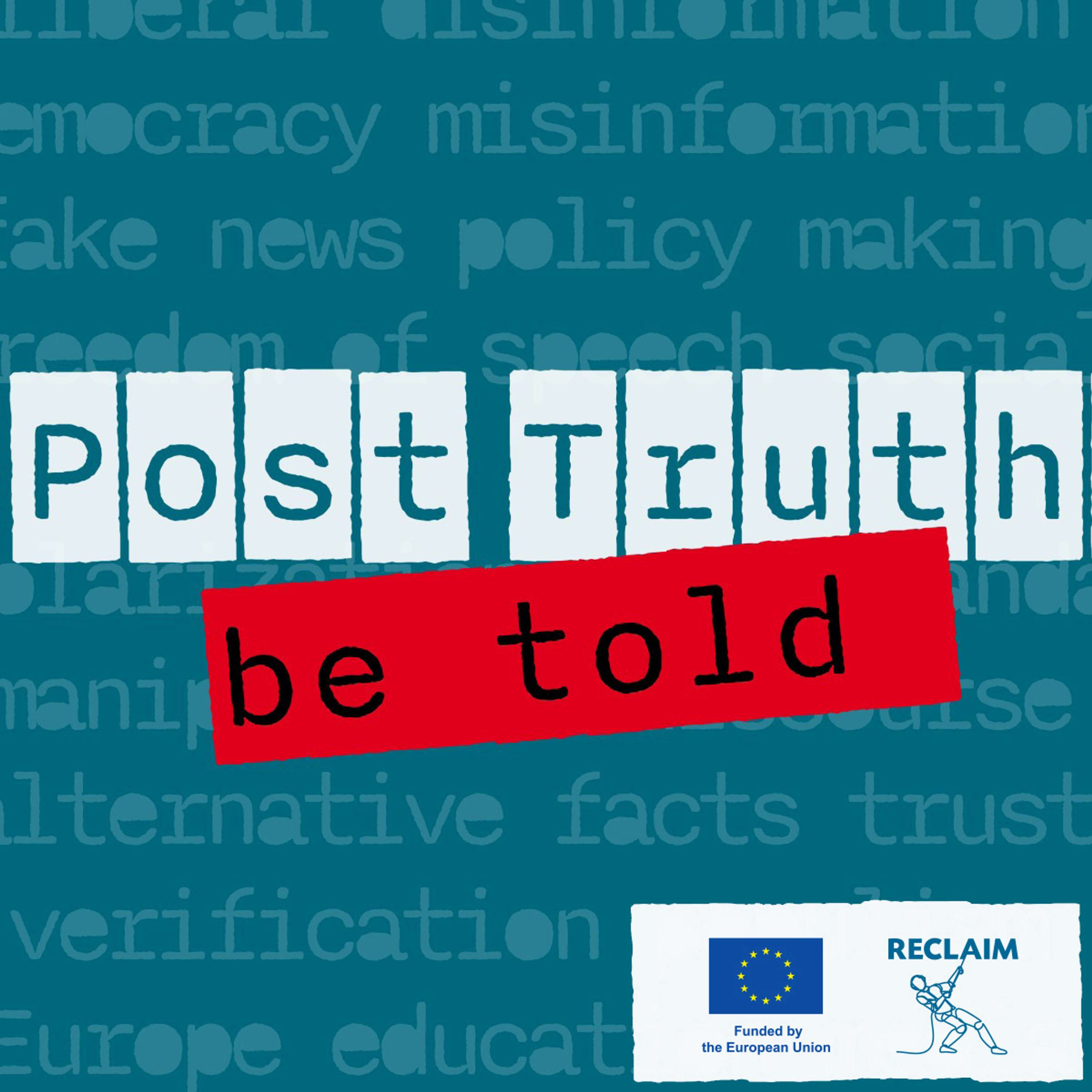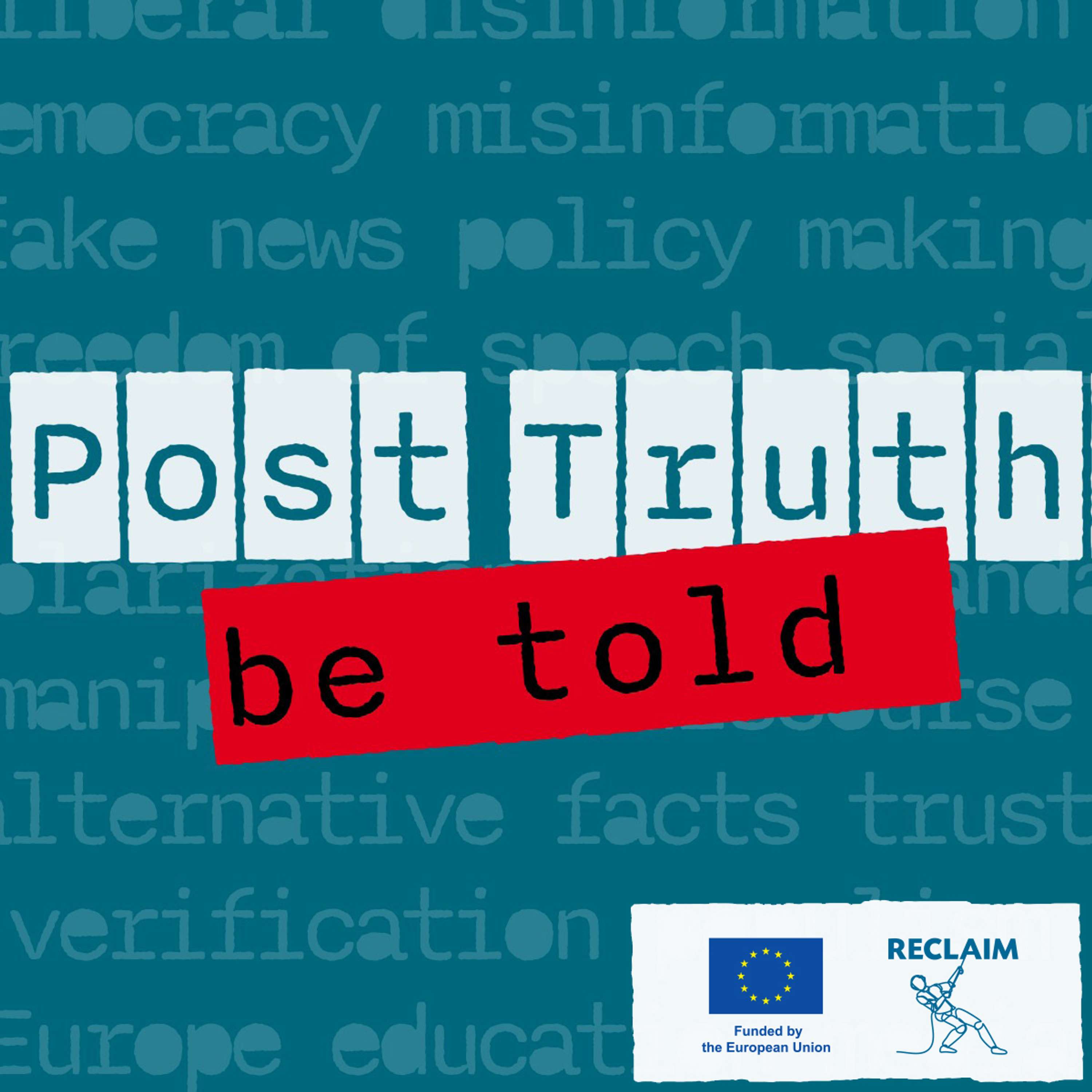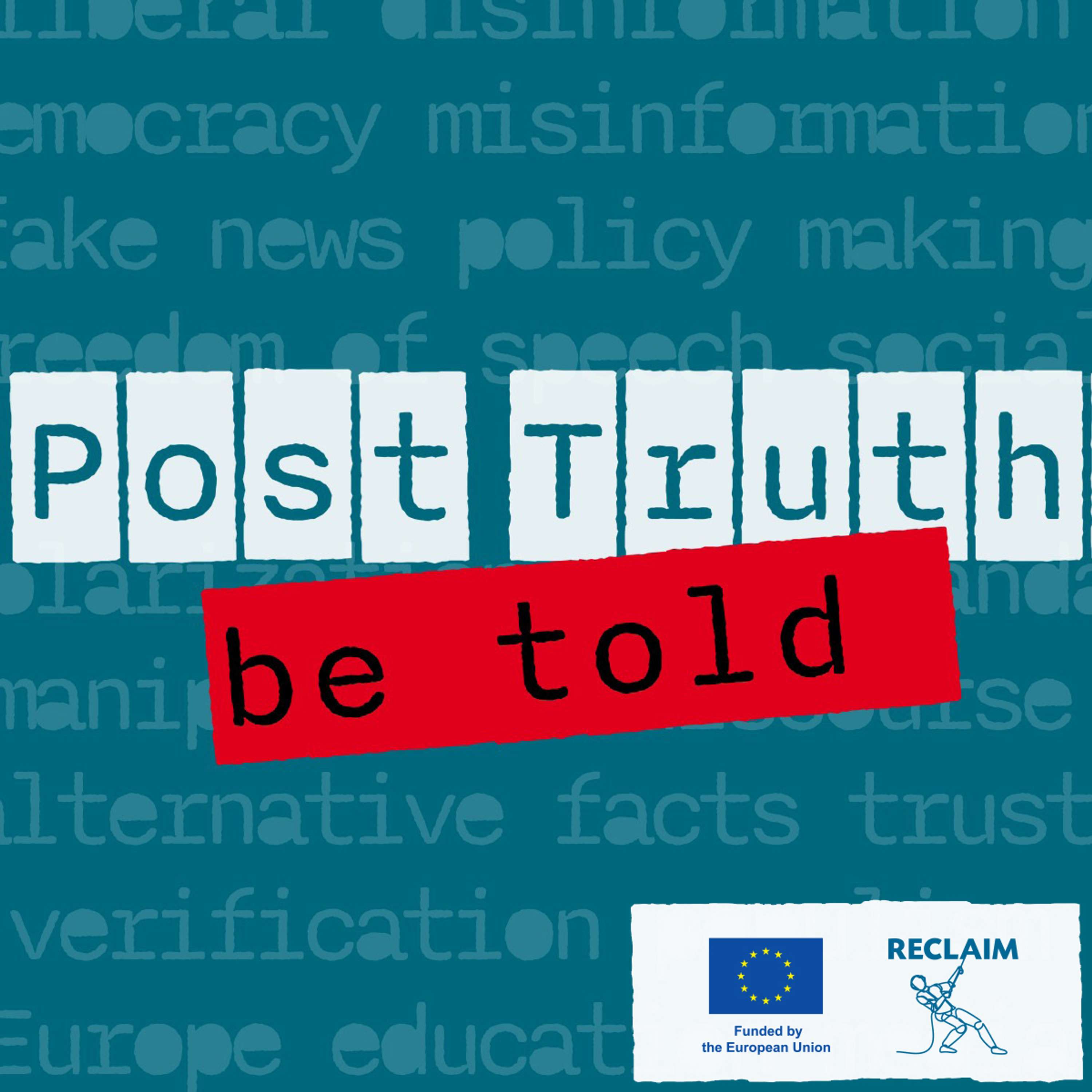Discover Post Truth be told
Post Truth be told

Post Truth be told
Author: RECLAIM
Subscribed: 1Played: 4Subscribe
Share
© RECLAIM
Description
A monthly podcast examining the effects of post-truth politics on contemporary societies. The podcast will share and discuss the results of RECLAIM, a Horizon Europe research project that studies the impact of the information disorder on liberal democracies as we have come to understand them in order to advise on policy making and education and to react to the negative effect of disinformation on democratic discourse.
RECLAIM is a Research and Innovation Action funded by the European Union's Horizon Europe programme. The contents of this podcast are the sole responsibility of the guests and do not reflect the opinion of the European Union or the Research Executive Agency. Neither the European Union nor the granting authority can be held responsible for them.
RECLAIM is a Research and Innovation Action funded by the European Union's Horizon Europe programme. The contents of this podcast are the sole responsibility of the guests and do not reflect the opinion of the European Union or the Research Executive Agency. Neither the European Union nor the granting authority can be held responsible for them.
13 Episodes
Reverse
As the EU seeks to defend democracy from foreign interference, it is reframing information as a potential security threat. This is reshaping how Europe understands speech, power, and security.This episode explores what FIMI changes and what it risks breaking in the EU’s own tools of global influence.Host: Luis Bouza García (Universidad Autónoma de Madrid)Guests: Lucas Proto (El Confidencial / Universidad Autónoma de Madrid), Ruth Ferrero Turrión (Universidad Complutense de Madrid), Sophier Veriter (Institute of Security and Global Affairs Leiden University).Producción: Franco Delle Donne (Rombo Podcasts)
European federalists have long wished for the EU to be taught in schools, but the real chance for Europeanised education may lie in fostering critical thinking skills in school. In this episode, we explore whether citizenship education should be a subject in European curricula, and how EU-level coordination can support teachers and students.Hosts: Luis Bouza García (Universidad Autónoma de Madrid) and Álvaro Oleart (Université libre de Bruxelles)Guests: Alessia Chiriatti (Istituto Affari Internazionali) and Federico Castiglioni (Istituto Affari Internazionali)Production: Franco Delle Donne (Rombo Podcasts)
In this episode, we unpack three proposals on democratic responses to disinformation, from social media regulation and algorithmic transparency to strengthening public service media. We also explore calls for a holistic EU-wide strategy on information integrity.Hosts: Luis Bouza, Universidad Autónoma de Madrid and Álvaro Oleart, Université libre de Bruxelles.Guest: Julia Rone, Assistant Professor Vrije Universiteit Amsterdam researching social movements, politics and the utopias and dystopias of digital media.Production: Franco Delle Donne, Rombo Podcasts
Today’s episode is a bit special, as it was recorded in the context of the RECLAIM Final Conference, and it was a panel entitled “Beyond the clickbait: Information flows and EU policy-making” which basically dealt with the EU media ecosystem, the relationship between EU media and EU institutions, the business model of EU media both established such as the FT and new initiatives such as James Kanter EU Scream, or the relationship between media and tech/AI.Host: Álvaro Oleart, FNRS Postdoctoral Researcher, Université Libre de Bruxelles.Guests: Ciara Bottomley (Amnesty International), Paola Tamma (Financial Times), James Kanter (EU Scream. Production: Franco Delle Donne, Rombo Podcasts
Today, we explore how the EU's emerging FIMI (Foreign Information Manipulation and Interference) framework shifts the focus from truthfulness to intent in combating foreign influence, raising critical questions about transparency, bias, and the limits of democratic defense.Host: Lucas Proto, Universidad Autónoma de MadridGuest Editor: Jan Daniel, Senior Researcher, Institute of International Relations Prague Prague.Guests: Charlotte Wagnsson is Professor in political science at the Swedish Defence University; Domenico Valenza, foreign policy practitioner and Associate Research Fellow at the United Nations University Institute on Comparative Regional Integration Studies. Production: Franco Delle Donne, Rombo Podcasts
Migration touches on deeply emotional, symbolic, and identity-driven issues. That makes it uniquely vulnerable to post-truth tactics, where fear and misperception override facts and evidence. This episode of Post-Truth Be Told unpacks how disinformation hijacks the migration debate—and who gains from it. Guest editor: Karolina Czerska-Shaw, Assistant Professor Jagellonian University in KrakówGuests: Viviana Ougou, Member of the Spanish Parliament and Olha Menko, President of the Management Board of the Poland-Ukraine Institute FoundationHost: Lucas Proto, Universidad Autónoma de Madrid.Production: Franco Delle Donne, Rombo Podcasts.
Algorithms decide what we see, what we miss, and influence what we believe. In this episode, we examine how digital technologies reflect and amplify social bias, distort public debate, and reshape our understanding of truth. What happens when platforms reward outrage over accuracy, and when AI becomes a tool for manufacturing alternative realities? The challenge isn’t just technical—it’s political, and it’s personal.Host: Lucas Proto, Universidad Autónoma de MadridGuest editors: Nikola Schmidt, Senior Researcher at the Institute of International Relations in PragueGuests: Myojung Chung, Assistant Professor of journalism and media innovation at Northeastern University and Rebooting Social Media visiting scholar at Harvard University’s Berkman Klein Center & Manuel Alcántara Plá, Associate Professor of Linguistics at the Universidad Autónoma de Madrid (UAM).Production: Franco Delle Donne, Rombo Podcasts
The very foundations of journalism—accuracy, verification, and trust—are under pressure. We discuss how journalism is adapting to survive in a world where speed and sensationalism often outweigh facts. What’s at stake for democracy, and how can journalists reclaim their vital role in an increasingly fragmented media landscape?Guest editors: Hans-Jörg Trenz, Professor of Sociology, Scuola Normale Superiore, Florence; Jacopo Custodi, Postdoctoral Research Fellow, Scuola Normale Superiore, Florence; Martin Moland, Postdoctoral Fellow at ARENA, Centre for European Studies, University of OsloGuests: Aurore Raoux Senior Policy Manager News Media Europe and Renate Schroeder Director European Federation of JournalistsHost: Lucas Proto, Universidad Autónoma de Madrid.Production: Franco Delle Donne, Rombo Podcasts.
Trump’s return to the Oval Office is more than a political comeback, it is evidence of how much post-truth has changed since 2016. The narrative then was that Trump rode a wave of misinformation straight into the White House. But in 2025, this is the story of a candidate whose every claim, and every scandal has been broadcast and dissected for nearly a decade. What’s changed? Populist leaders like Trump aren’t just relying on disinformation to win elections; they use it as a governing strategy. And now, with powerful allies at their side in the form of tech moguls.Guest Editor: Saul Newman, Professor of Politics, Goldsmiths University LondonGuests: Joao Magalhaes, Assistant Professor in Media, Politics and Democracy at the Center for Media and Journalism Studies, University of Groningen & Diara J. Townes, engagement journalist and research consultant for the Disinfo Defense League, a project of the Media Democracy Fund. Host: Lucas Proto, Universidad Autónoma de MadridProduction: Franco Delle Donne (Rombo Podcasts)
The Digital Services Act, the EU’s digital regulation master stone, is designed with the intention of tackling content affecting democratic political debate without limiting free speech. But things get more complicated when it comes to so-called “harmful content” or “disinformation”: the line between keeping people safe and stifling free speech remains a difficult one to navigate. Join us for a discussion on the dilemmas in regulatory responses to disinformation.Guest editor: Luis Bouza García, Associate Professor Universidad Autónoma de Madrid. Guests: Joan Barata Senior Legal Fellow for The Future of Free Speech Project, Vanderbilt University & Jan Penfrat is Senior Policy Advisor at European Digital Rights (EDRi).Host: Lucas Proto (Universidad Autónoma de Madrid).Sound: Franco Delle Donne (Rombo Podcasts).
"Democracy Dies in Darkness" is a motto adopted by the US newspaper The Washington Post in 2017. Does democracy need to be defended in the era of post-truth politics? How, from what or whom? Does the debate on the protection from post-truth phenomena deviate attention from other major problems democracies have? Join us for a discussion of the defence of democracy in the EU in 2024.Guest editor: Álvaro Oleart, Postodoctoral Researcher, Université libre de Bruxelles.Guests: Richard Youngs, senior fellow in the Democracy, Conflict, and Governance Program at Carnegie Europe and Aarti Narsee, Senior Policy and Advocacy officer at the European Civic Forum.Host: Lucas Proto (Universidad Autónoma de Madrid).Sound: Franco Delle Donne (Rombo Podcasts).
Do we really live in a "post-truth" era? Can liberal democracy be reclaimed from polarised and epistemically disputed debates? This episode discusses possible responses by EU institutions and member states via civic education, platform regulation and political narratives.Guest editor: Maximilian Conrad (University of Iceland).Guests: Karolina Czerska-Shaw (Jagellonian University in Krakow) and Luis Bouza García (Universidad Autónoma de Madrid).Host: Lucas Proto (Universidad Autónoma de Madrid).Sound: Franco Delle Donne (Rombo Podcasts).
A monthly podcast examining the effects of post-truth politics on contemporary societies. The podcast will share and discuss the results of RECLAIM, a Horizon Europe research project that studies the impact of the information disorder on liberal democracies as we have come to understand them in order to advise on policy making and education and to react to the negative effect of disinformation on democratic discourse.RECLAIM is funded by the EU’s Horizon Europe. The contents of this podcast are the sole responsibility of the guests and di not reflect the opinion of the European Union. The Research Executive Agency is not responsible for any use that may be made of the information it contains.


